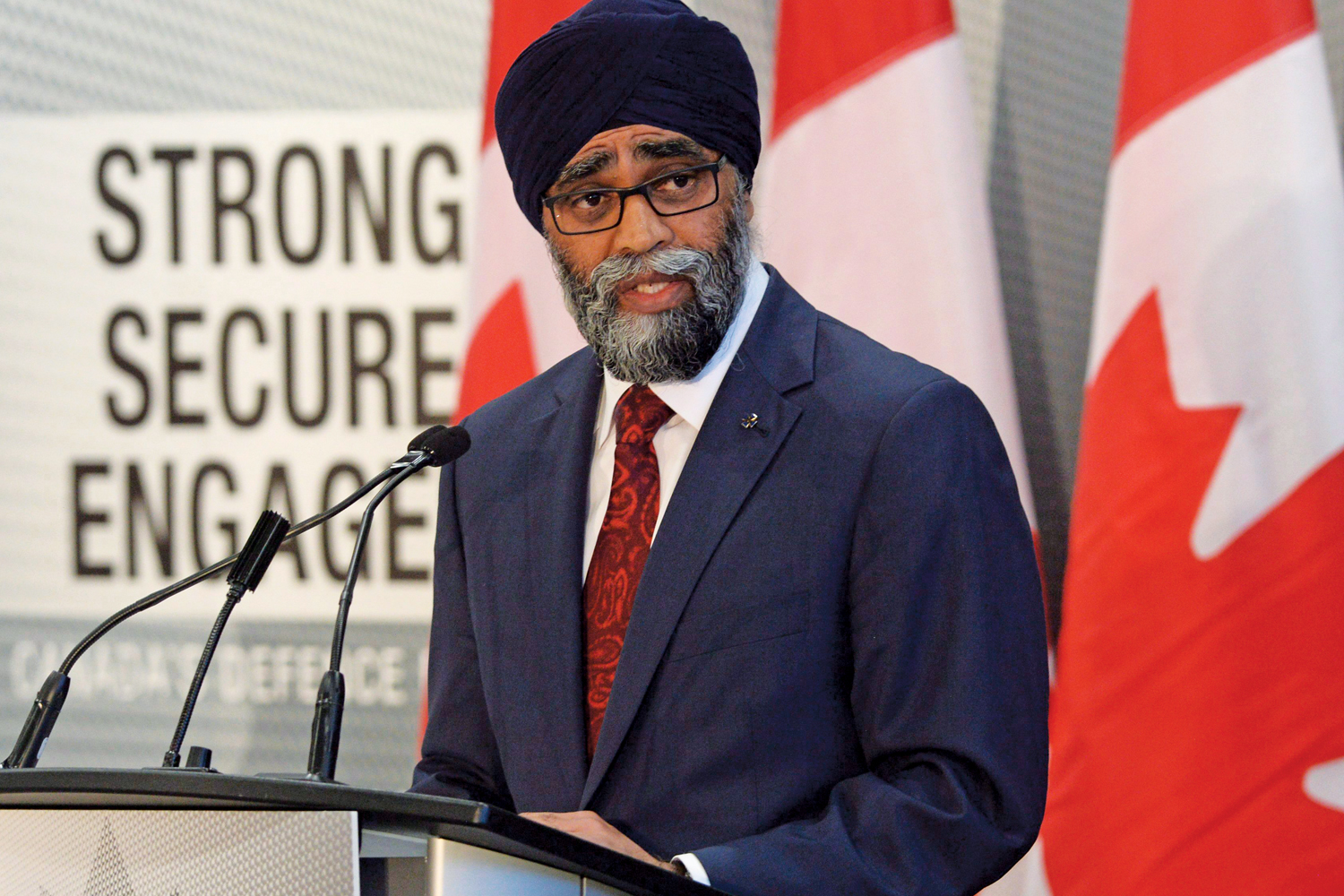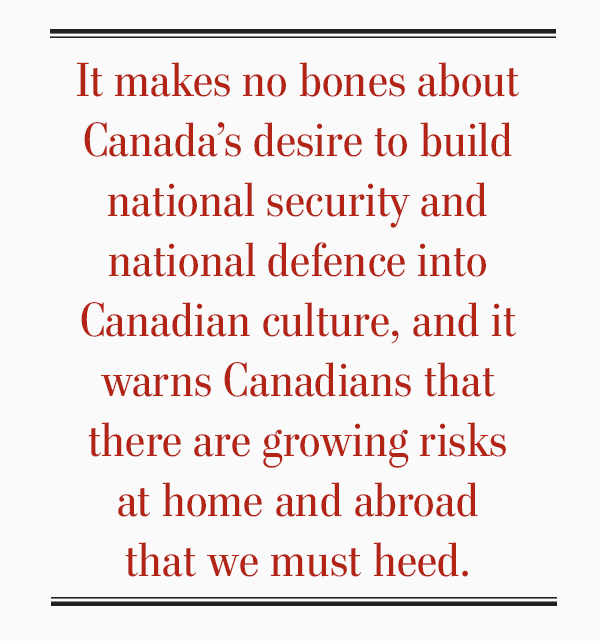
Minister of National Defence Harjit Sajjan unveils the defence white paper in Ottawa. [Adrian Wyld/Canadian Press]
It is difficult trying to figure out where the federal Liberal government stands on national defence and national security issues. On June 6, 2017, the government released Strong, Secure, Engaged: Canada’s Defence Policy, which is the first true white paper on defence since 1994. (Peter MacKay’s 2008 Canada First Defence Strategy was more of a procurement strategy than a white paper.) The document is an important change from prior white papers and from the direction (if anyone can call it that) that Liberal defence policy has been on since before the federal election of 2015.
The white paper is a 113-page document that lays out the government’s vision of how it wants national defence to develop over the next 20 years. It sets out prospective investments, including 88 new fighter jets as ultimate replacements for the CF-18, 15 surface combatant ships to replace the Halifax-class frigates and now-gone destroyers, and 5,000 new regular and reserve soldiers. But its true importance lies in its tone of wariness over the increasing global dangers to the world order.
It solidly places Canada’s defence policy within the growing threats to that order from both conventional and high-tech adversaries. It also places great emphasis—right in the first part of the document—on key social issues affecting individuals in the Canadian Armed Forces, from the drive to wipe out discrimination and sexual harassment to the transition of soldiers to veterans and the care of physically and mentally wounded soldiers whose operational experiences have made their return to civilian society very difficult.
Some people will quibble with the new defence policy because it doesn’t lay out priorities and doesn’t fully explain how new monies—which will more than double the defence budget over the next 10 years—will be absorbed by the military’s current structure. It is also, of course, dependent on the outcome of future Canadian elections. But it makes no bones about Canada’s desire to build national security and national defence into Canadian culture, and it warns Canadians that there are growing risks at home and abroad that we must heed.

The defence policy does devote some space to peacekeeping but also explains that most of the peacekeeping going on today in the world is far more akin to peace enforcement, involving fighting forces, than the classic Lester Pearson-era peacekeeping that Canada engaged in so willingly from 1957 to the mid-1990s.
It is, at least, a robust defence policy that most Canadians should support, let alone live with, and a good beginning to reconstructing the bipartisan defence policies that Canada knew from the end of the Second World War until the Pierre Trudeau era.
But unknown to most Canadians, in early June this same Liberal government gave a Chinese company permission to take over a Canadian high-tech corporation, Norsat International Inc., that manufactures key components for satellite and other communications. One of its biggest customers is the United States military. If the deal goes through—an American hedge fund is also bidding for the Canadian company—a Chinese company, Hytera Communications of Shenzhen, would be in charge of sales to an entire range of American and other agencies. It would give China access to important intellectual property that it would otherwise not have. This approval is the second such move by Ottawa to allow a Chinese enterprise to take over a Canadian company—the first was ITF Technologies of Montreal—that in the previous Conservative government’s view gave China a significant advance on western militaries. The Tories stopped that move when they were in office.
So what gives?
There can only be three explanations for the obvious contradictions between the new directions set out by the government in the white paper and the government’s approval of the transfer of Canadian military and security technology companies to companies that are directly or indirectly under the control of the same country that is menacing free navigation in the South China Sea. Does the left hand not know what the right hand is doing? Is the government so determined to get a free-trade deal with China that the security of Canadians comes second? Or is it a deep ignorance in Ottawa about how Chinese corporations—privately owned or not—are ultimately under the control of the Communist Party and its security, intelligence and defence agencies?
Whatever the answer, the outcome is obvious: two steps forward and one step back.
Advertisement



















